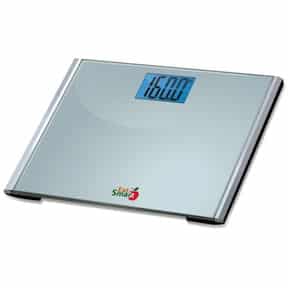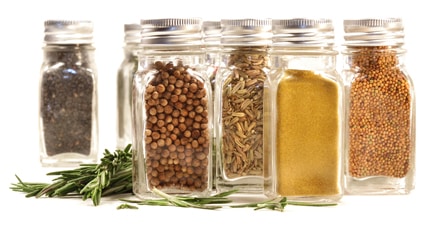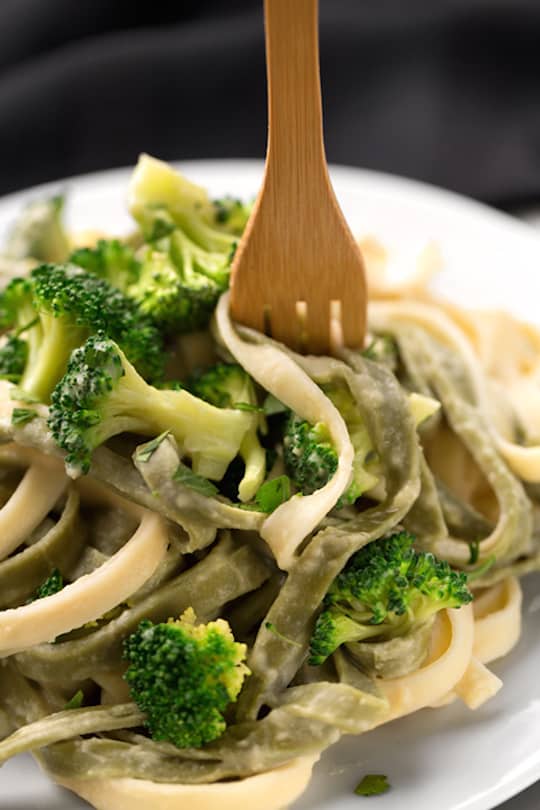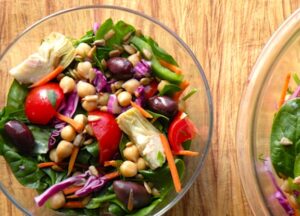At the start of every new year, we all make resolutions to get healthier, happier — and usually, thinner! Let's do away with resolutions that are all too easy to break and instead adopt healthy habits that will become second nature and do what dieting can never achieve. Here are our top 10 tips for healthy living that you can incorporate into your routine this year.
1. Cut the sugar, can the soda
If you can make just one major change, it should be to cut the amount of sugar you consume. According to a USDA survey, the average American eats about 20 teaspoons of added sugar daily, or 317 empty calories. Research has shown that 82% of that added sugar can be attributed to soda, breakfast cereals, candy, and fruit drinks.
Soda is the biggest source of empty calorie intake and contributes to all sorts of ailments, including high blood pressure, diabetes, kidney issues, and childhood obesity. Osteoporosis has been scientifically linked to soda consumption as well.
- Stevia is a great sugar replacement. Here are some benefits of using stevia instead of sugar and sugar substitutes.
- Make your own treats to control the amount of sugar in them. Here are 10 low- and no-sugar desserts that you need not wait until a special occasion to make.
- If you’re still not convinced, here are some great visuals of how much sugar is in a number of different beverages.
2. Discover the benefits of apple cider vinegar
Visitors come to VegKitchen in droves to learn more about apple cider vinegar, which is believed to have a plethora of benefits. Though these haven’t been explored in rigorous, double-blind scientific studies, there’s plenty of anecdotal evidence of its health benefits. We recommend raw, unfiltered and organic ACV, which offers an array of enzymes and gut-friendly bacteria. Here are our popular articles on the subject:
- 23 research back benefits of apple cider vinegar
- 6 health benefits of apple cider vinegar
- How does Apple cider vinegar work to help you lose weight?
3. Enjoy a tonic or two
Are you searching for a way to give your immune system a boost? How about a drink that can relieve stress? VegKitchen readers love ginger-lemon tea (really an infusion) and rooibos tea. Both are consumed for pleasure as well as for their plethora of benefits. Here are 5 reasons why you should drink ginger lemon tea and 9 proven health benefits of rooibos tea. We've even put these two together and added the aforementioned ACV for a powerful beverage we call The One Tonic. Cheers!
4. Discover a world of herbs and spices
As the popularity of healthy, ethnic cooking home grows, our spice rack should expand to accommodate the seasonings give vegan dishes their unique characters. Volumes can be written on the healing aspect of herbs (in fact, see our review of the terrific book, Healing Spices), the focus of our listing of common culinary herbs and spices is more culinary in nature. Herbs and spices, fresh and dried, have long been recognized for their nutritional properties; but because they make food more delicious (and decrease the need for salt), they're often overlooked.
5. Slow down and be mindful when you eat
Sitting down (or all too often, driving through) for a meal is all too often a mindless task rather than an enjoyable, nourishing experience. Mindless eating and overindulging can result in negative health consequences like digestive disorders and obesity. Eating mindfully, on the other hand, encourages proper digestion and can aid in nutrient absorption, promote ideal body weight and help you develop a healthy relationship with food.
Mindful eating is not a diet. It’s a conscious way of eating and enjoying food for both good health and pleasure. Learn more in our post on mindful eating tips. And even more to the point, here are five reasons why chewing your food thoroughly helps you eat less and enjoy it more.
6. Count steps, not calories
Current wisdom has it that for optimum health, and to prevent weight gain, it’s good to take 10,000 steps a day. That means walking about 4 miles in the course of a day. It shouldn’t be a big deal, but for many people, it’s a distant goal that doesn’t seem doable, between too-busy schedules and inadequate fitness levels. Wireless tracking devices like the Fitbit provide motivation, and get you into the best kind of competitive spirit — competing with your self, to try to do better today than you did yesterday. There's also several kinds of free apps to download onto your phone that function as pedometers, and some that do even more than that, like MyFitnessPal.
7. Use smaller plates
 Believe it or not, the size and color of your plates have a lot to do with portion control. Since the mid-19th century, the size of an average American dinner plate has grown about 25% larger. By the year 2000, the average dinner plate was 11 inches in diameter, and now, it’s not unusual to find dishes that are 12 inches or larger. And that’s aside from restaurant plates, which can sometimes resemble small boats!
Believe it or not, the size and color of your plates have a lot to do with portion control. Since the mid-19th century, the size of an average American dinner plate has grown about 25% larger. By the year 2000, the average dinner plate was 11 inches in diameter, and now, it’s not unusual to find dishes that are 12 inches or larger. And that’s aside from restaurant plates, which can sometimes resemble small boats!
If you’re given a large plate or bowl, do you only fill half of it? Most of us would fill the entire thing, and once it’s in front of us, we feel compelled to to eat it all. If, on the other hand, you use a smaller plate or bowl, you’re likely to eat — and be satisfied with — that portion. Learn more about how the size of dinner plates affects portion control.
8.Weigh yourself regularly
 When your weight creeps up, there's a tendency to avoid stepping on the scale. But if you really want to reach and maintain your ideal weight, you've got to get real about the numbers.Weighing yourself regularly can help you to lose or maintain weight, and has been shown to be a great incentive to keep you eating sensibly and striving for an ideal weight. Once a week works better for some, as small weight fluctuations from day to day can be discouraging. Others find it helpful to do a daily weigh-in.
When your weight creeps up, there's a tendency to avoid stepping on the scale. But if you really want to reach and maintain your ideal weight, you've got to get real about the numbers.Weighing yourself regularly can help you to lose or maintain weight, and has been shown to be a great incentive to keep you eating sensibly and striving for an ideal weight. Once a week works better for some, as small weight fluctuations from day to day can be discouraging. Others find it helpful to do a daily weigh-in.
It comes down to doing what works best for you. A healthy diet plus regular exercise plus getting real about my weight has proven a successful formula for me, and hopefully it will work for you. Here’s more on why you should weigh yourself regularly and why a digital scale is best.
9. Fill up (in a good way) with soup
Starting a meal with a plant-based soup fills you up in a way that’s good for you. Hardy vegetables (especially roots and cruciferous veggies), grains, beans, peas, and lentils are quite filling, yet low in calories.
Veggie-filled soups contains more water then other dishes, keeping you well hydrated. They’re also quite appetizing, yet at the same time help curb appetite for foods that may not benefit you or which you may be tempted to overeat. Because soups based on vegetables and/or legumes are high in fiber, they also keep you full for a long time.
Proving how soups can fill you up but not out, here are 6 hearty vegan soups under 200 calories per serving.
10. Last but not least, adopt a plant-based diet
Those who have chosen to go vegetarian — and then who transition to vegan — appreciate knowing that their food choices can not only be tasty and healthy, but compassionate and humane as well. Not to mention the enormous benefit of whole-food plant-based diet to our rapidly deteriorating environment. Here are great reasons to adopt a plant-based diet, from your own personal health to the health the planet, and to show compassion to all living beings.
Here’s more about how and why to go plant-based:











Preston says
Apple cider vinegar is amazing stuff!